National Eye Health Week (22-28 September 2025)
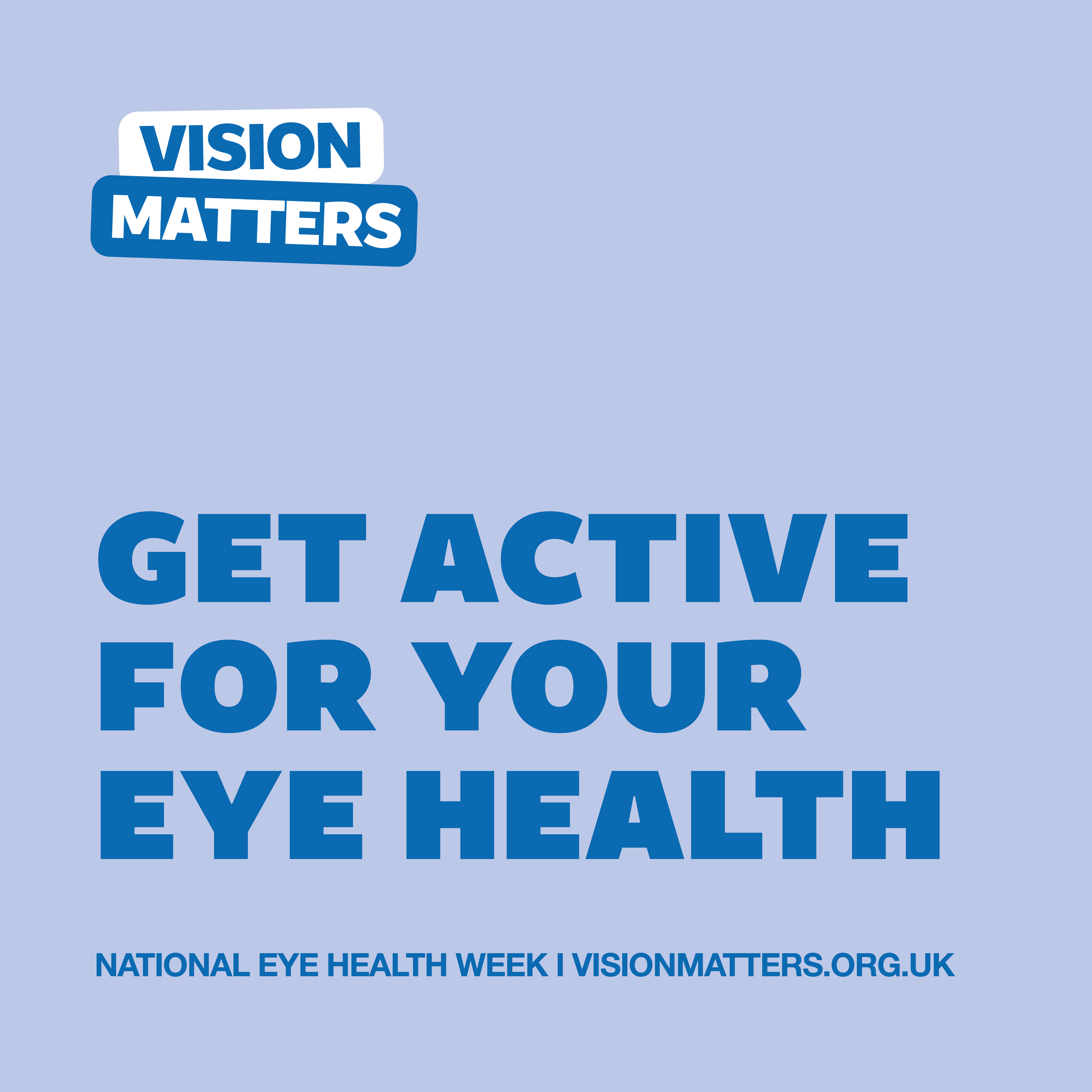
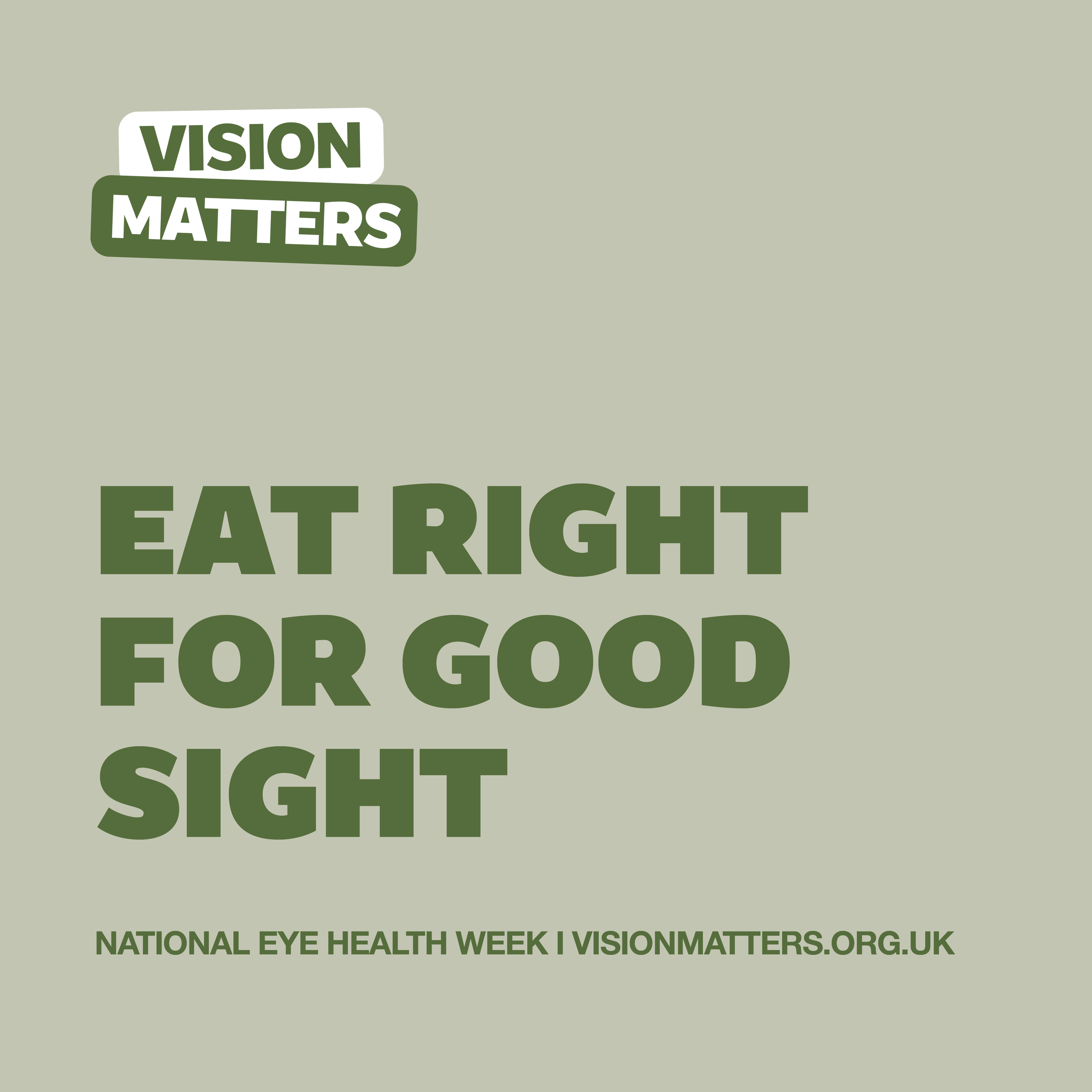
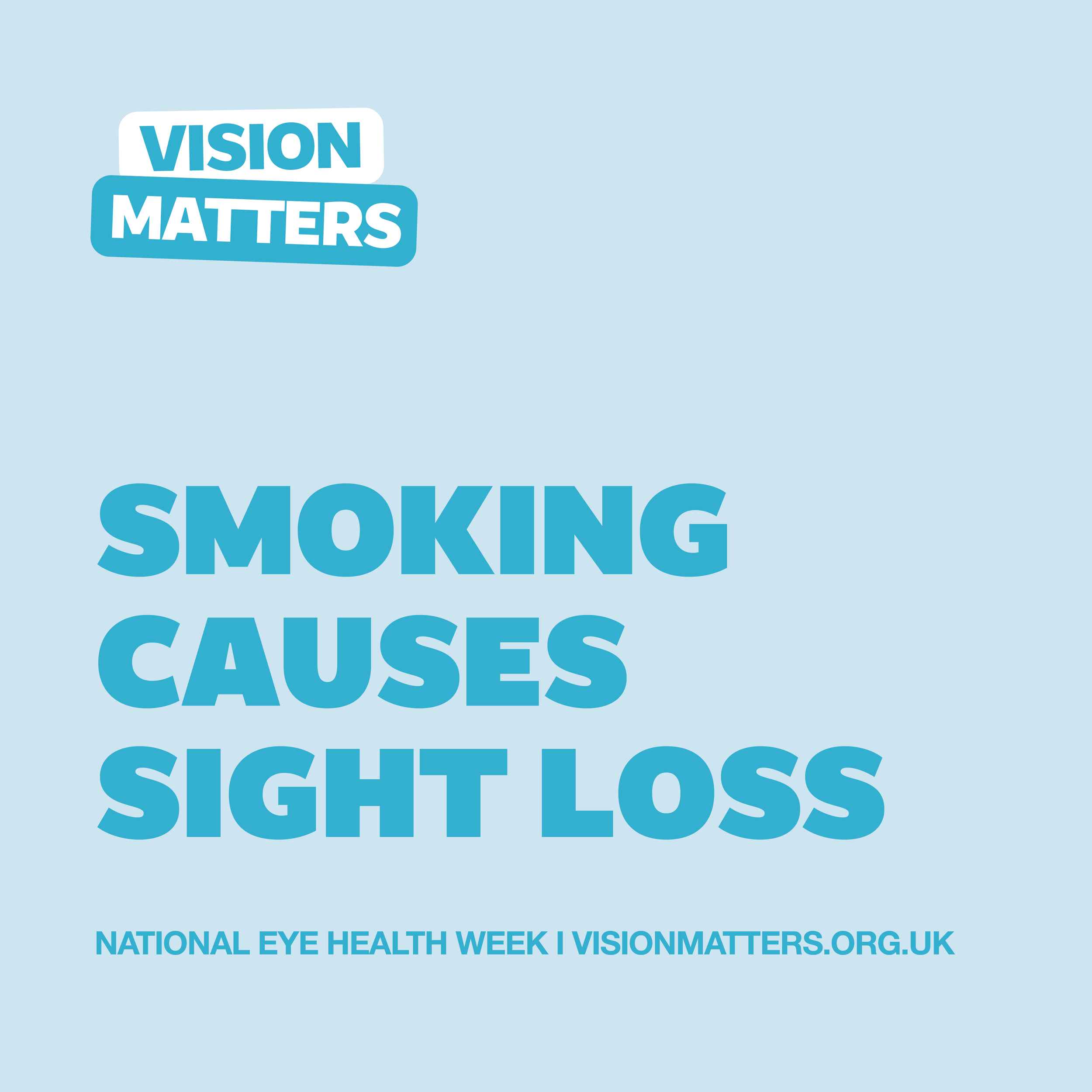
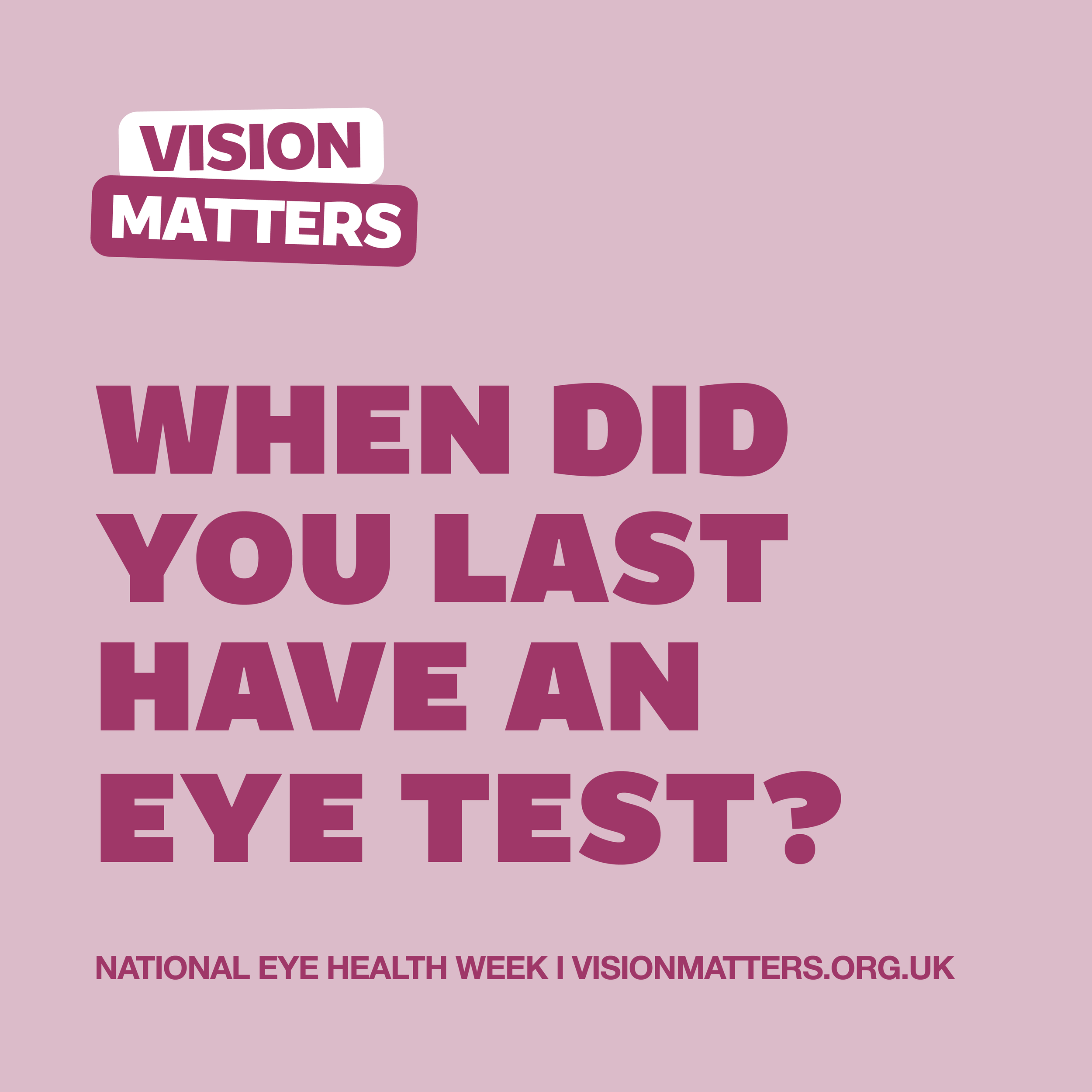
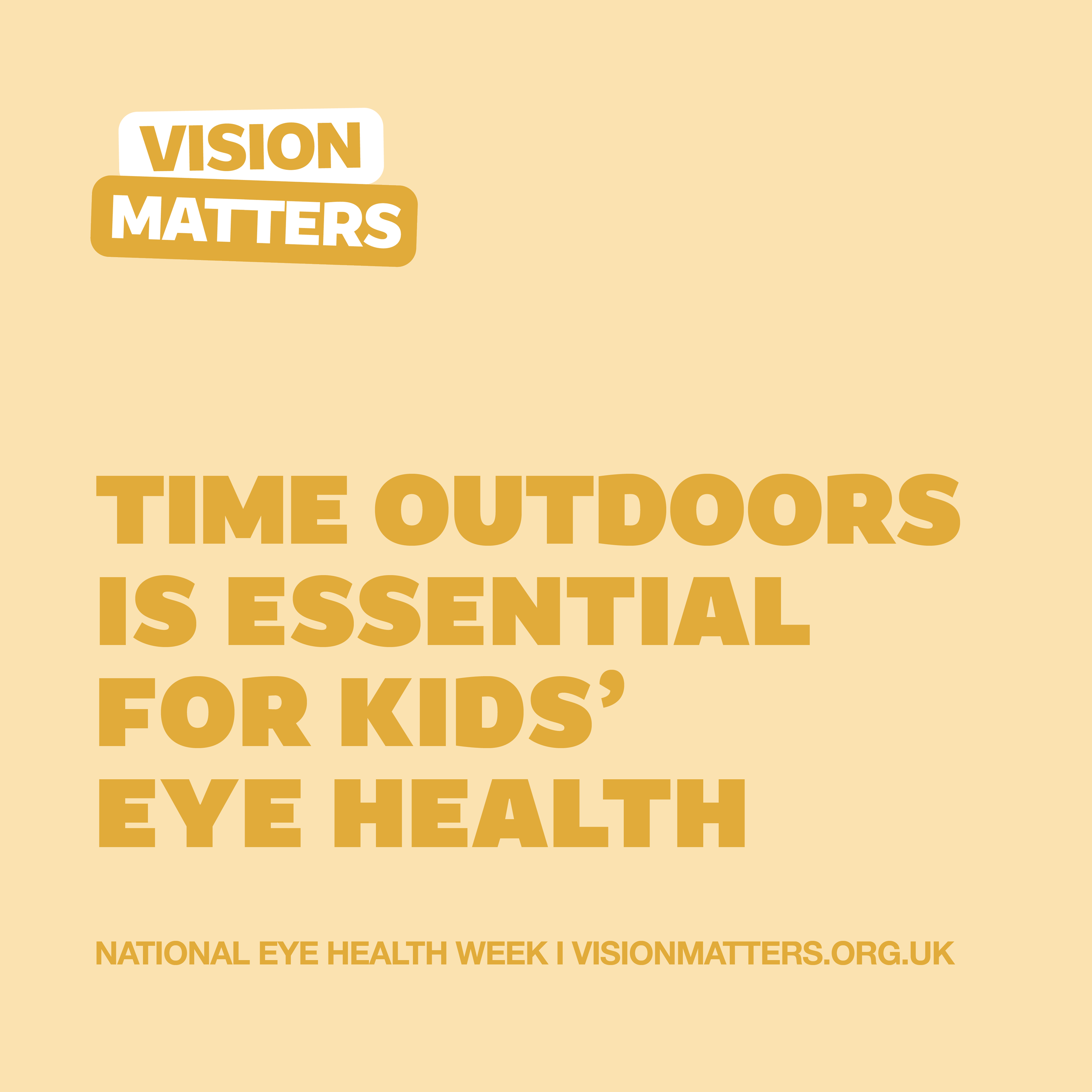
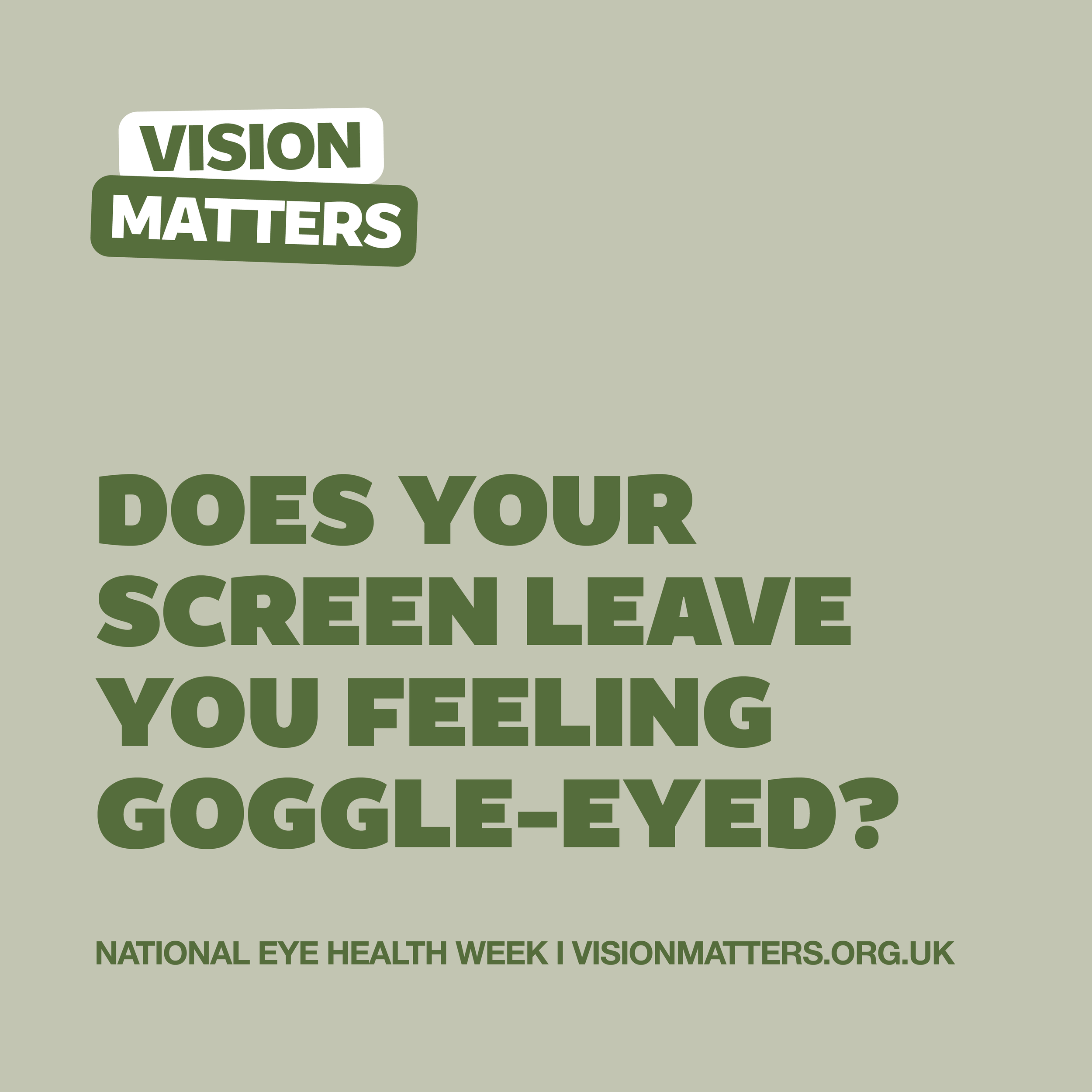
Six simple sight savers
We’re supporting National Eye Health Week
We’re urging local residents to take better care of their eye health as part of National Eye Health Week, which takes place 22- 28 September.
“Research shows half of all sight loss is avoidable so we want to inspire local people to adopt healthy habits that could make a big difference to their vision and eye health and prevent future avoidable sight loss.”
Here’s our sight saving tips…
Eat right for good sight. Most of us have no idea that what we eat can affect how well we see, however, eye-friendly nutrients found in many fruit and vegetables and fatty acids derived from fish, nuts and oils can all help protect our sight. Vitamins B and E can help protect against cataracts whilst omega-3 fish oils help maintain healthy blood vessels inside the eye.
Quit smoking. Smokers have a significantly greater risk of sight loss than non-smokers. Toxic chemicals in tobacco smoke can damage the delicate surface and the internal structure of the eye, leading to an increased risk of sight-threatening eye disease and poor eye health.
Watch your weight. Two-thirds of British adults are overweight, putting them at increased risk of all four major causes of sight loss – macular degeneration, diabetic retinopathy, glaucoma and cataract. A high waist / hip ratio, has also been found to have a particularly strong association with eye disease.
Stay active. Aerobic exercise can help increase oxygen supplies to the optic nerve and lower any pressure that builds up in the eye. Reducing intraocular ‘eye’ pressure can help control conditions such as glaucoma and ocular hypertension.
Cover up. Exposure to UV light increases your risk of developing cataracts and macular degeneration. According to the World Health Organisation UV damage is the biggest modifiable risk factor of cataract development. Always wear sunglasses or lenses with inbuilt UV protection whenever the UV index rises to three or more – even on a cloudy day!
Be screen smart. Nowadays we spend more time staring at a screen than sleeping, so it’s no surprise that 90 per cent of us say we experience screen fatigue – tired or irritated eyes, blurred vision, headaches and poor colour perception. Avoid eye strain by using the 20-20-20 rule, especially if you’re using a computer for long periods of time. Look 20 feet in front of you every 20 minutes for 20 seconds.
And, don’t forget to book an eye test during National Eye Health Week if you haven’t had one in the last two years.
Routine eye tests are essential health checks for everyone, not only can they detect issues with your sight, they can also spot a range of chronic health conditions including cardiovascular disease and risk of stroke.
